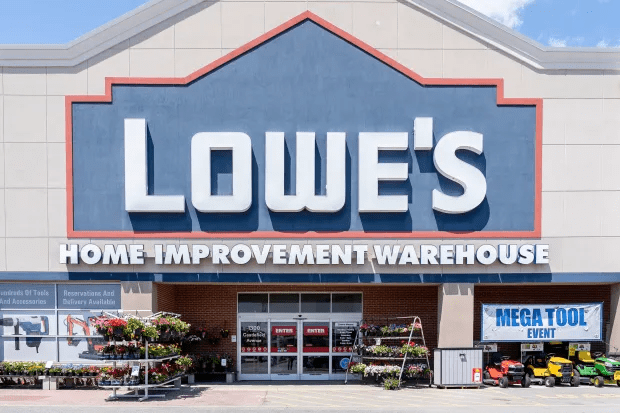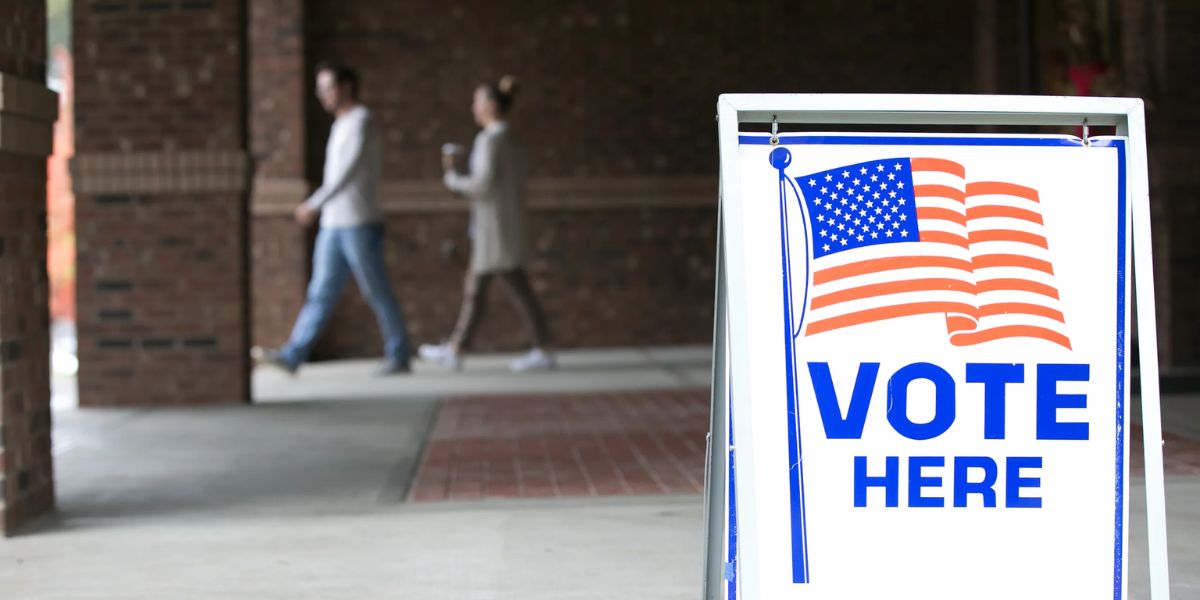Nevada Election Integrity: The Battle Over Voter Registration Accuracy
A Clark County, Nevada, election worker counts a mail-in ballot during the 2022 midterm elections. Clark County was one of five counties sued by the Republican National Committee in March regarding voter registration lists. (Gregory Bull/The Associated Press)
Scott Hoen ran for Carson City, Nevada’s chief election official two years ago on the promise of “election integrity,” ensuring that voter registration databases were correct. In the turbulent aftermath of the 2020 presidential election, he felt that too many of his Republican colleagues were convinced of rampant voter fraud. Hoen believed that by keeping voter rolls up to date, he might restore voter trust in his county’s electoral system.
He won. And, every day since taking office, he and his staff have worked to maintain that focus, collecting data from all levels of government to remove people who have relocated or died from the active voter list.
Hoen was astonished to be included in a lawsuit filed by the Republican National Committee and the Nevada Republican Party last month against him, four other Nevada county clerks, and the secretary of state. The lawsuit claims that five localities have “inordinately high” voter registration rates and that the state is breaching federal law by not maintaining “clean” voter registers.
Hoen described the case as “unfortunate” and “a distraction” in a critical election year. The state reacted by claiming that the data Republicans used in the complaint is “highly flawed” and that the RNC’s analysis was “comparing apples to orangutans.” Former President Donald Trump’s lawyers claimed without evidence that more than 1,500 dead Nevadans voted in 2020, with an additional 42,000 voting twice.
The Nevada lawsuit is just one example of the measures being used by Republicans and conservative groups ahead of the November presidential election to purge voter records of purportedly invalid voters. Election experts are concerned about the activities’ impact on voter access.
Election authorities routinely change a voter’s status. Hoen, like others across the country, transfers voters from active to inactive status when election mail is frequently returned or when he receives death announcements, then back to active status when motor vehicle records for newly registered voters arrive.
Nevada is also a member of the Electronic Registration Information Center, or ERIC, an interstate data-sharing agreement designed to assist states in maintaining up-to-date voter lists. Recently, ERIC has been the target of conspiracy claims, resulting in the departure of nine Republican-led states over the last two years.
“Who knows where they acquired their numbers? But they didn’t consult, ask, or speak with me about what we do with voter roll maintenance,” Hoen said of the lawsuit in an interview with Stateline. “We do everything we can, per the law, to keep our voter rolls as plain as possible.”
The Republican National Committee filed a similar complaint against Michigan last month. Conservative groups have recently launched lawsuits in some other states, seeking access to state voter registration records that they believe are bloated. Some states, including Georgia and Indiana, have made it simpler to remove registered voters from the lists. Trump-aligned groups have also released data analysis tools to help with large-scale voter registration issues.
Election experts say that keeping correct voter lists is an important aspect of election management, but they are afraid that the challenges and litigation may fuel unsubstantiated suspicions of widespread voting fraud. They are also concerned that it will impose undue hardship on voters who may be required to confirm their eligibility close to an election, as well as clog election officials with unnecessary data demands and disputes.
“When you see efforts to do mass challenges during the presidential primaries and months before a major election, you have to wonder if the intent is to create chaos and confusion among voters rather than legitimate list maintenance,” said David Becker, founder and executive director of the Center for Election Innovation & Research, a nonpartisan organization that advises local election officials across the country.
Voter challenges are not inherently negative, he stated. There are legitimate reasons to file a challenge. A neighbor may have died or moved away, and a voter wishes to notify an election officer.
However, Becker is concerned that large challenges and litigation may make voter lists less accurate, resulting in issues at polling locations, more provisional ballots, and longer waits, allowing candidates to claim an election was stolen.
Massive Voter Challenges
Georgia passed legislation in 2021 that allows residents to file unlimited objections to voter registrations and requires local election authorities to reply within 10 business days. Thousands of registrations were questioned, and local election authorities scrambled to review the data and respond.
The following year, 10 election staffers in Gwinnett County, Georgia, worked for more than 40 days straight to process 47,000 challenges in the midterm election, according to Zach Manifold, the county elections supervisor. According to Fair Fight, a local voting rights organization, records reveal that these obstacles disproportionately affect people of color and young voters.
Manifold described the county’s voter roll as “a living, breathing document.” His office processes thousands of regular modifications each week. In addition to regular county-level updates and membership in ERIC, Georgia performs large-scale list maintenance on odd years.
While a federal judge decided in January that mass challenges in Georgia are not criminal intimidation, he did state that the list of potentially ineligible voters produced by conservative organizers to protest registrations “utterly lacked reliability” and “verges on recklessness.”
A scenario akin to the mass problems of 2022 may play out this year.
Last month, the Republican-controlled Georgia House enacted a bill that would clarify existing law by establishing standards for probable cause to challenge voters and the amount of evidence required for a successful challenge. It would also prevent registration deletions within 45 days of an election.
Some Democrats were concerned that the change would result in a surge of challenges, harming votes. Republican state Sen. Max Burns, one of the bill’s authors, said during a March committee meeting that the law may result in fewer challenges.
“I think we need to clean up our voter rolls so that people have confidence that those who are on the voter rolls are legitimate,” Burns told the audience. Republican Gov. Brian Kemp, who is also Georgia’s former secretary of state, has until early May to sign the bill. His office informed Stateline that there would be a thorough evaluation process.
Last month, Indiana Republican Gov. Eric Holcomb signed legislation that makes it simpler to remove voters from the rolls by mandating state officials to check voter registration lists with noncitizen motor vehicle databases. Those who are flagged will have 30 days to establish their citizenship.
The New Hampshire House also approved legislation that would allow voter registration disputes on Election Day. The bill is currently before a state Senate committee. To help with these problems, some right-wing organizations that allege American elections are rigged due to voter fraud have released voter list tools that activists may use to search voter registrations.
EagleAI created a technique for scanning Georgia voter registration records. Similar attempts are underway in Nevada and Michigan, all coordinated by the Election Integrity Network, which is led by Cleta Mitchell, a former Trump campaign attorney. The network did not respond to an interview request.
“They’re perpetuating these lies that our voter rolls are full of fraudulent voters and bloated,” said Kristin Nabers, Georgia state director for All Voting is Local Action, a voting rights organization that has fought large challenges in the state. “The burden on election offices is considerable.”
More Lawsuits
Court cases that make voter rolls public are helping to ease registration challenges.
Since 2020, there have “been a lot of questions” about elections, according to Lauren Bowman Bis, director of communications and outreach for the Public Interest Legal Foundation, one of the numerous conservative groups that have sued states to divulge voter registration lists.
Transparency in elections is critical for people to have greater trust in the system, she noted. By having access to voter names, addresses, and party registration information, groups like Bis’ can check states to ensure that lists are correct, that no duplicate ballots are sent, and that dead persons be removed from the registers.
Bis has visited cemeteries in Michigan, where she claims she has seen the names of active voters on tombstones.
The organization, also known as PILF, is facing lawsuits in Hawaii, Michigan, and South Carolina over voter roll maintenance. Over the last four years, they have successfully sued Illinois and Maryland, gaining access to their voter rolls.
A federal appeals court ordered in February that Maine must provide the Public Interest Legal Foundation with access to its voter rolls. The group has appealed a Michigan district court decision that it lost last month, alleging that the state did not make a “reasonable effort” to clean its records.
Another conservative organization that maintains voter rolls online, the Voter Reference Foundation, sued Pennsylvania in February over access to its registration lists. The group did not respond to email inquiries.
“The voter roll is the most essential election integrity document,” Bis remarked. “We’re just trying to make sure that federal law is enforced in states or localities where we find election officials aren’t doing what they are required to by law to have a secure election that people can have confidence in the results.”
However, the disagreement over these attempts boils down to facts, namely the technique used by plaintiffs in their cases.
Conservative groups frequently compare the current number of registered voters to an outdated estimate of the number of voting-age citizens in the jurisdiction, according to Eliza Sweren-Becker, a senior counsel at the Brennan Center for Justice, a voting rights organization based at New York University School of Law.
“You’re comparing apples and oranges in suggesting that there’s something improper with high voter registration rates,” she went on to say. “We should hope and expect that all eligible Americans who want to participate in our democratic system are registered to vote and can stay on the rolls.”
Some Republicans are Also Concerned
Dennis Lennox, a Republican political consultant based in Michigan, told Stateline that, while he disagrees with how many Democratic state officials changed voting rules in recent years, he is concerned that some Republicans are more focused on lawsuits and restricting ballot access than adapting to new early voting realities to increase voter turnout.
“Republicans, by and large, have been caught flat-footed,” Lennox said in an email. “The party nationally and in many states is divided between those wanting to focus on so-called lawfare and those willing to adapt and accept the reality of campaigns and elections in 2024.”











